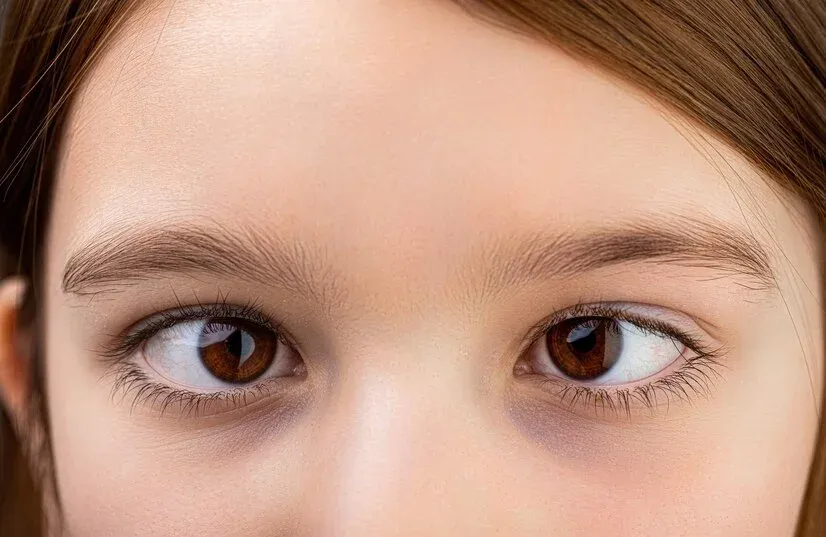Vision Therapy
Vision Therapy: Alternatives for Eye Conditions
FSDAVCFEBFEVSDDVFSD
FSDAVCFEBFEVSDDVFSD
FSDAVCFEBFEVSDDVFSD
Why Vision Therapy?
Vision therapy is becoming popular as a non-surgical approach for treating various eye conditions. This alternative eye treatment involves customized vision exercises and eye therapy programs designed to improve visual skills and correct vision problems.
The benefits of vision therapy go beyond simple eye health improvement, offering a detailed approach to treating eye disorders. Here, we will look at ten treatments that showcase the success and versatility of optometric vision therapy.
Vision therapy is becoming popular as a non-surgical approach for treating various eye conditions. This alternative eye treatment involves customized vision exercises and eye therapy programs designed to improve visual skills and correct vision problems.

The benefits of vision therapy go beyond simple eye health improvement, offering a detailed approach to treating eye disorders. Here, we will look at ten treatments that showcase the success and versatility of optometric vision therapy.

1- Improving Visual Acuity in Amblyopia
Amblyopia, or lazy eye, is a condition where one eye has reduced vision due to poor early visual development. This results in the brain favoring one eye over the other, leading to visual impairment in the affected eye. Vision therapy offers a non-surgical solution by incorporating specialized vision exercises that stimulate the weaker eye and encourage proper visual development. These eye therapy programs involve activities such as patching the stronger eye to force the weaker eye to work harder, using lenses or prisms, and engaging in tasks that improve eye coordination and focus. The success of vision therapy in treating amblyopia is well-documented, with many patients experiencing significant improvements in visual acuity and eye function.
2- Realigning Eyes in Strabismus
Strabismus, commonly known as crossed eyes, occurs when the eyes are not properly aligned and point in different directions. This can lead to double vision, depth perception issues, and visual discomfort. Vision therapy addresses strabismus through targeted vision exercises designed to improve eye muscle control and coordination. These eye therapy programs may include activities such as using prisms to align the visual field, practicing eye movements that promote proper alignment, and strengthening the muscles that control eye positioning.
By following a structured optometric vision therapy regimen, patients can achieve better eye alignment, improved binocular vision, and enhanced depth perception. This alternative eye treatment provides a non-invasive option for correcting strabismus, often reducing the need for surgical intervention.
3- Strengthening Eye Muscles for Convergence Insufficiency
Convergence insufficiency is a condition where the eyes have difficulty working together when focusing on close objects. This can cause symptoms like eye strain, headaches, and difficulty reading. Vision therapy strengthens the eye muscles through specific vision exercises that improve the ability to converge the eyes effectively. These exercises, part of a comprehensive eye therapy program, include activities such as pencil push-ups, where patients focus on a small object moving closer to their nose, and computer-based tasks that train the eyes to maintain proper alignment at close distances. The benefits of vision therapy for convergence insufficiency are substantial, as it provides a non-surgical solution that enhances eye coordination, reduces symptoms, and improves overall visual comfort.
4- Reducing Double Vision
Double vision, or diplopia, can occur due to various factors, including misaligned eyes, weak eye muscles, or neurological issues. This condition disrupts daily activities and can significantly impact the quality of life. Vision therapy aims to improve eye coordination and reduce double vision through customized vision exercises.
These exercises are tailored to address the specific causes of diplopia and may involve activities such as focusing on single images with both eyes, using prisms to adjust the visual field, and performing tasks that enhance eye muscle strength and coordination. Optometric vision therapy offers a successful approach to treating this eye disorder, helping patients regain clear and single vision.
5- Increasing Eye Tracking Ability
Eye tracking problems, such as difficulty following moving objects or reading smoothly, can affect academic performance and daily tasks. Vision therapy includes exercises to improve eye tracking, enhancing the ability to follow moving objects accurately. These programs involve activities such as using tracking charts, following light targets, and engaging in computer-based exercises that promote smooth and coordinated eye movements.
Improving eye tracking ability through vision therapy can lead to better reading skills, increased visual attention, and overall eye health improvement. This non-surgical approach provides an effective solution for enhancing visual tracking and coordination.
6- Improving Visual Processing
Visual processing disorders occur when the brain has difficulty interpreting visual information, affecting learning and daily activities. Vision therapy focuses on exercises that enhance visual processing skills, helping the brain process visual inputs more efficiently. These eye therapy programs may include activities such as visual memory tasks, pattern recognition exercises, and spatial orientation games.
By improving the brain's ability to process and interpret visual information, patients can experience significant improvements in reading, comprehension, and overall cognitive function. This non-surgical eye treatment showcases the success of vision therapy in addressing complex visual processing issues and enhancing quality of life.
7- Increasing Focus with Accommodative Exercises
Accommodative dysfunction affects the eye's ability to focus on objects at varying distances, leading to symptoms like blurred vision and eye strain. Vision therapy includes accommodative exercises that train the eyes to adjust focus more effectively. These eye therapy programs involve activities such as lens flippers, where patients practice focusing on targets through lenses of varying strengths, and near-far focusing exercises that require rapid shifts in focus.
By strengthening the eye's accommodative ability, patients can alleviate symptoms and improve their ability to focus on tasks at different distances. Treating this eye disorder with vision therapy offers a practical, non-surgical solution for enhancing visual comfort and functionality.
8- Sports Vision Training for Athletes

Athletes require excellent visual skills for peak performance, including depth perception, hand-eye coordination, and reaction time. Vision therapy offers specialized sports vision training to enhance these skills, providing a competitive edge. These vision exercises are tailored to the specific needs of athletes and may include activities such as dynamic visual acuity drills, peripheral awareness exercises, and reaction time training.
By improving visual skills through optometric vision therapy, athletes can achieve better performance in their respective sports, making sports vision training an essential component of their training regimen. This alternative eye treatment not only enhances athletic performance but also contributes to overall eye health improvement.
Athletes require excellent visual skills for peak performance, including depth perception, hand-eye coordination, and reaction time. Vision therapy offers specialized sports vision training to enhance these skills, providing a competitive edge. These vision exercises are tailored to the specific needs of athletes and may include activities such as dynamic visual acuity drills, peripheral awareness exercises, and reaction time training.

By improving visual skills through optometric vision therapy, athletes can achieve better performance in their respective sports, making sports vision training an essential component of their training regimen. This alternative eye treatment not only enhances athletic performance but also contributes to overall eye health improvement.
9- Alleviating Computer Vision Syndrome
Prolonged screen use can lead to computer vision syndrome, characterized by eye strain, dry eyes, and visual discomfort. Vision therapy includes exercises designed to reduce digital eye strain and improve visual comfort. These eye therapy programs focus on relieving symptoms and enhancing visual endurance through activities such as focusing exercises, blink rate training, and visual breaks.
By incorporating optometric vision therapy into their routine, individuals can alleviate the symptoms of computer vision syndrome and improve their overall comfort during screen use. This non-surgical eye treatment provides an effective solution for managing the visual demands of the digital age.
10- Restoring Vision Post-Trauma
Post-traumatic vision syndrome can result from brain injuries, affecting visual function and coordination. Vision therapy helps restore vision through targeted exercises that improve eye coordination and processing. These eye therapy programs involve activities such as saccadic eye movements, visual memory tasks, and peripheral vision training.
By addressing the specific visual deficits caused by trauma, vision therapy can help patients regain visual function and improve their quality of life. The success of vision therapy in rehabilitating vision after injury highlights its value as a comprehensive eye condition treatment for post-traumatic vision syndrome.
This convenience extends to everyday life, where the simplicity of not having to worry about visual aids during the day offers a seamless, hassle-free experience for users of all ages. The ability to go about daily activities without the need for glasses or contact lenses provides a level of freedom and ease that is highly valued by Ortho-K users. Whether for professional athletes or individuals with active lifestyles, Ortho-K presents a practical solution for maintaining clear vision without the constant maintenance of traditional visual aids.
Let’s wrap things up
Vision therapy offers a versatile and effective alternative eye treatment for various eye conditions. From improving visual acuity in amblyopia to increasing focus and reducing digital eye strain, the benefits of vision therapy are extensive. This non-surgical eye treatment provides a personalized approach to eye health improvement, making it a valuable option for those seeking comprehensive care.
For tailored vision therapy programs and expert guidance, consult with an eye care professional to determine the best course of treatment for your needs. For personalized care, visit Kleinwood Vision.

Contact Info
Hours of Operation
Mon - Fri | 9:00 AM - 5:00 PM
Sat - Sun | Closed
Holiday Hours: We are closed for the following holidays: New Years Day, Memorial Day, Independence Day, Labor Day, Thanksgiving Day, Christmas Day
© 2026 Kleinwood Vision. All rights Reserved.


